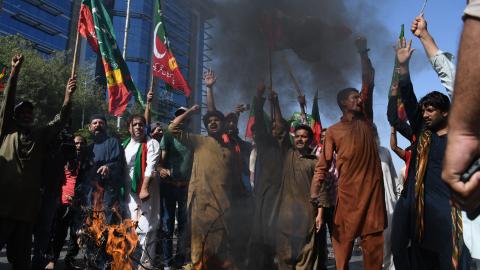Pakistan is adrift in a sea of troubles. Its economy is in a tailspin. GDP growth in the past year shriveled to only 0.29 percent. Annual inflation has soared to 36 percent, and annual inflation in food prices stands at a whopping 48 percent. The country faces a balance-of-payments crisis, and negotiations with the International Monetary Fund over a bailout have stalled. Catastrophic floods in 2022 have forced the country, until recently a wheat exporter, to import wheat.
Compounding the economic misery is the ongoing security threat posed by the Pakistani Taliban, a militant group that has grown increasingly brazen in its attacks on civilian and military targets across the country. Internationally, Pakistan’s standing is at an all-time low. Relations with the United States, once an ally and the source of billions of dollars in military and economic assistance, have waned since the U.S. withdrawal from Afghanistan in 2021. India, a rival ever since the two countries emerged from the partition of British India in 1947, refuses to engage its neighbor until Pakistan acknowledges its role in backing terrorism across the border and clamps down on militants. Even traditional partners and friends, including China and countries in the Arab and Islamic world, seem weary of Pakistan’s metastasizing crises.















